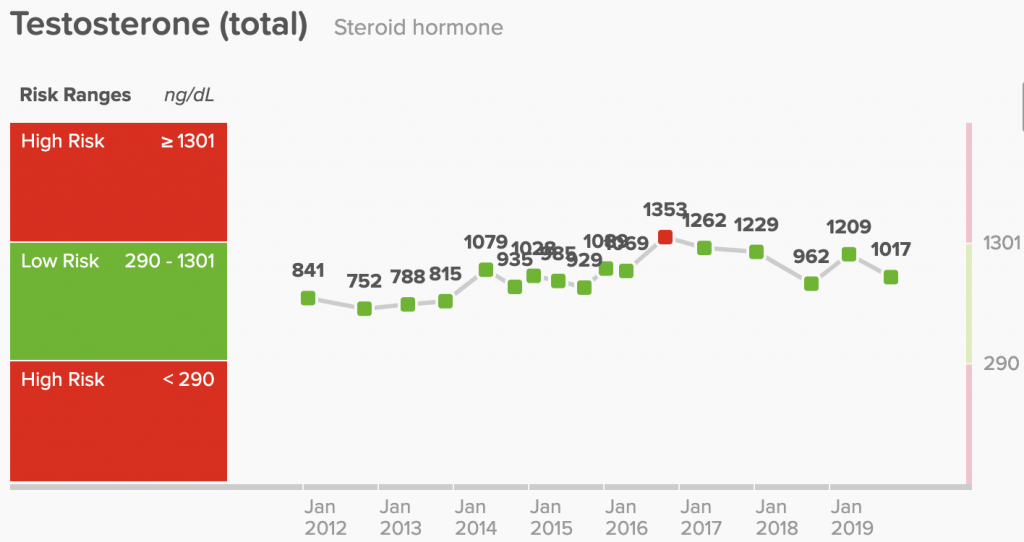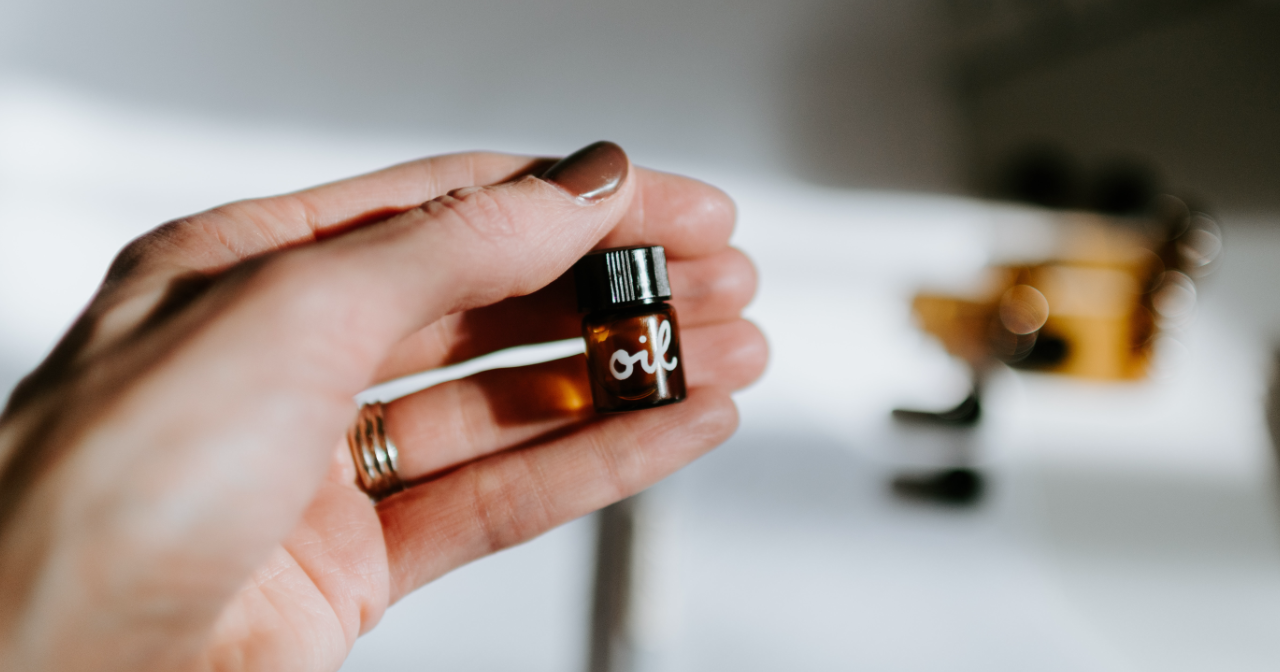Listen on: Apple Podcasts | Spotify
Can essential oils enhance your fitness program? Absolutely.
If you would have asked me my opinion of essential oils in 2013, I might have responded with a blank stare. They weren’t on my radar at that time.
A year later, Vanessa started using essential oils. I was a little slow getting started, and even slower getting behind them.
It’s not that I didn’t trust my wife. She always does her homework. However, I noticed a lot of people with little experience in health and fitness, saying things that you’re not allowed to say about natural products.
The Truth Is Good Enough
One of the reasons I was so skeptical of essential oils was because of the outlandish health claims I saw posted on social media and spoken at events.
Like dietary supplements, essential oils are natural products. They are not drugs.
And yet, I consistently saw people make drug claims about essential oils, claiming they’d cure just about any disease, resolve any dysfunction, and outdo almost any other remedy available.
The claims were irresponsible, often illegal, and sometimes outlandish.
The illegal claims could be considered drug claims, a major no-no according to the FDA.
The irresponsible claims made essential oils sound like the only thing you needed to use in order to be healthy and live longer. Never mind the importance of diet, exercise, and good lifestyle choices.
The outlandish claims sometimes sounded like new age hocus-pocus, such as “essential oils eliminate negative energy in your environment.”
I’m not saying people shouldn’t passionately talk about essential oils, supplements, or other ways of improving one’s health. What I am saying is that they shouldn’t play doctor, promote pseudo-science, or suggest that using essential oils is the main step in improving health and wellbeing.
To that end, this article is about using essential oils to enhance your health and fitness program. I will not refer to disease states or suggest oils for treating chronic conditions.
If you’ve ever been turned off from using essential oils by what someone said about them, I hope this article turns you back onto using them. If you’ve ever exaggerated their benefits, I hope this article helps to ground you in what they’re capable of. The truth is good enough.
Like Supplements, Essential Oils Do Best With a Solid Base of Support
Somewhere between my skepticism, and the over-the-top claims I saw on social media, I found the middle ground. There’s no longer a day that goes by when I don’t use a handful of different essential oils in some way.
I also understand their limitations.
No essential oil makes up for a lousy diet, a lazy lifestyle, or a lack of sleep.
Before you’ll experience the full benefit of essential oils, you need a solid foundation of health to start from.
- Eat a high-protein diet
- Strength train at least four days per week
- Sleep a minimum of seven hours each night
- Supplement with the Foundational Five
If you’ve read my book, The 3 Pillars of VIGOR, you’ll recognize the first three.
Will you get some benefits from some essential oils without a consistent commitment to the points above? Perhaps.
But part of my goal each time I write is to avoid blowing smoke.
Anyone who suggests you can achieve great, long-lasting health just by using a supplement or essential oil is either knowingly lying, or doesn’t understand what it takes to get fit and healthy.
If it seems like there’s a tinge of irritation in those remarks, your perception is accurate.
I’m tired of people getting lured into gimmicky exercise, diet, and supplement programs that promise way more than they can deliver.
Ok. Soap box session over. Let’s get into how I recommend using essential oils as part of your fitness program.
My First Essential Oils Experiment
Vanessa started using essential oils in January, 2014. In March, she asked if I’d be willing to try an essential for male hormone support. As a man, I’m “all ears” when it comes to supporting testosterone levels.
A significant percentage of people, both men and women, have low testosterone. In many cases, it’s lifestyle, nutrition, and exercise-related. My testosterone levels were pretty good, but who wouldn’t want them to be better?
And since I’d had my levels tested for a couple of years prior, I knew where my “normal” was. I told Vanessa I’d give it a try, doubting it would make a difference. For the next 12 weeks, the only change I made was using the oil.
The results are in the image below.

The jump from 815 to 1079 was my first little “test.” Of course, with my skepticism, I still wasn’t convinced my testosterone would stay up there over time. As you can see, it has.
Would I expect others to have similar results? For some men, yes. I have friends who did the same thing I did, and saw similar results in their lab work.
Of course, healthy hormone levels depend on lifestyle, nutrition, and exercise habits, as well as one’s current state of health.
One of the many things that annoys me to no end is when a guy thinks he has low testosterone based on some subjective symptom like a lack of sex drive, and then his buddies tell him to take a supplement or use an oil. It doesn’t work that way.
If a guy is fat, he needs to get lean. If he eats too much junk or drinks too much alcohol, he needs to change his diet. If he sleeps less than seven hours a night, he needs to go to bed earlier. If he doesn’t lift weights, he needs to get in the gym.
To suggest a supplement or essential oil as a starting point while ignoring the stuff above would be like trying to slow your lung cancer by switching from unfiltered to filtered cigarettes.
If you want more guidance on supporting testosterone (for both men and women), check out my article 9 Causes of Low Testosterone.
After my experiment, I started reading, listening, and experimenting. Almost six years later now, they’re a regular part of my routine. I use a number of essential oils, and oil-infused supplements each day.
Clinical Research vs Anecdotal Evidence
Throughout most of history, natural medicine evolved without the need for double-blind, placebo-controlled studies. It was more “trial and error.”
Sometimes, the errors were deadly, like when someone tried eating a Rosary Pea (it’s a bright red berry that kills you about four days after eating it).
Other medical practices became standard, with doctors thinking they were doing something right, and only later realizing it was a terrible idea. Bloodletting is one such example.
In other cases, though, we gained an appreciation for natural medicine through “trial and success.”
Sailors avoided scurvy by eating oranges (later, it was discovered that vitamin C in oranges was what did it).
People avoided sickness by using echinacea, improved mental clarity from using ginko biloba, or felt relief from achy joints when they used turmeric.
Had these, and other herbs and botanicals not worked, they wouldn’t be popular still today.
Nutritional science has been, and always will be, a combination of anecdotal evidence, scientific evidence, and experience and experimentation.
Such is the case with essential oils. At this point, hundreds of thousands of people have experienced various health benefits from them, without needing double-blind, placebo-controlled studies to prove it.
However, thousands of studies exist today as well. That said, there will never be a double-blind, placebo-controlled study to backup every anecdotal effect of essential oils, botanicals, herbs, or even exercise programs for that matter.
So, in my opinion, we take the anecdotal evidence, the scientific evidence, and add in a little personal experimentation like my example above, and see what works for you.
Using Essential Oils While Working Out
Pre-Workout Essential Oils
With the exception of black coffee and water, I don’t recommend supplements before or during exercise for the average, non-elite athlete person.
Consuming carbs, protein / amino acids, or fat reduce the body’s stress response to exercise. Exercise is the one time during the day where you want to create an exaggerated stress response. Doing so helps to stimulate growth hormone and amp up your recovery processes following exercise.
However, I do use and recommend a variety of stimulating essential oils before exercise.
They don’t provide any nutritional value and can increase mental alertness, focus, and sympathetic drive.
Peppermint
I wouldn’t say peppermint is the best pre-workout essential oil, but it has been studied the most around exercise.
Research shows peppermint essential oil improves strength, power, visual and auditory acuity, and stamina, and reduces feeling of fatigue. Peppermint also improves memory and mental function (interestingly, ylang-ylang essential oil impaired working memory in one study).
The evidence suggests peppermint enhances exercise performance when inhaled or taken internally.
It also has a cooling effect, which is helpful for training in the heat.
Thirty healthy college students were divided into a control group, or a group who got 50 µl of peppermint essential oil on their tongues. One drop is typically 50 µl.
Those who received the oil increased grip strength, vertical jump, standing long jump, and improved visual reaction and auditory reaction time when tested five minutes, and still one hour after the peppermint exposure.
Though this wouldn’t be considered “pre-exercise,” in another study, twelve men consumed 50 µl of peppermint essential oil in 500 ml of water each day for 10 days. When comparing before and after test results, the time to exhaustion and distance covered significantly improved.
Dried peppermint infused in water reduced blood lactate levels following sprints in another study. However, dried mint tends to have fewer volatile compounds than peppermint essential oil. It would be interesting to test the blood-lactate effects of consuming peppermint essential oil.
Peppermint does a lot more than just enhance exercise as well. If you haven’t already, I recommend also reading my article Peppermint Essential Oil: Health and Fitness Benefits.
Other Pre-Workout Essential Oils
Might other essential oils also enhance exercise performance?
I suspect so. However, if you wait for conclusive research, you’ll never benefit the way you could. The use of essential oils for exercise isn’t a high priority among researchers. And, if high-performing athletes get an edge from them, they wouldn’t want to make that known.
Inhalation of a blend of peppermint, basil, and helichrysum was shown to reduce feelings of mental burnout in a small study. This might be useful on days when you feel like you’re dragging yourself to the gym due to physical or mental fatigue.
Inhalation of black pepper, estragon, fennel, or grapefruit essential oil increased sympathetic nervous system activity 1.5 to 2.5 times, which suggests these essential oils could also enhance exercise performance.
To sum this up, I use and recommend essential oils before and during exercise to help you lift more, move faster, and train harder, mainly through simulating the sympathetic nervous system just as smelling salts do.
Give them a try. The worst that can happen is your performance remains the same, but you smell better than anyone else in the gym.
My favorite pre-workout blends include the following essential oils:
- Cedarwood, black spruce, myrtle, coriander, sandalwood, frankincense, bergamot, vetiver, and ylang ylang
- Basil, cardamom, rosemary, peppermint, coriander, geranium, lemon, ylang ylang, jasmine, chamomile, palmarosa
- Black spruce, camphor, blue tansy, frankincense, geranium
- Wintergreen…yup, sometimes, I just go for wintergreen by itself
Pro Tip
Although you might get a heavier dose of oils by inhaling directly from the palms of your hands, I’ve noticed that the aroma wears off a lot faster when I put the oils on my hands while weight training. Instead, I usually put 2-4 drops of oil on my forearms and rub them together.
Recovery and Essential Oils
Exercise is a stress, or a stimulus.
Assuming you follow a well-designed fitness training program, your efforts in the gym trigger your body to change.
However, your diet and lifestyle determine whether you will change or not.
Think about it this way…Most of my VIGOR Training members invest four hours per week in the gym. That’s 2.3% of their week.
You have to create the right stimulus in the gym, so by no means am I saying your gym time isn’t important. It absolutely is.
But what you start with that 2.3% can only be finished if you make good choices the other 97.7% of your week.
Unfortunately, many people’s gains from the gym are lost at home.
Recovery includes sufficient sleep, digestion, hormonal balance, and managing inflammation and muscle soreness. Essential oils can play a role each of these aspects of recovery.
Sleep
Research shows essential oils can have a significant impact on sleep quality.
However, inhaling essential oils seems to be the most effective way to enhance sleep quality, and according to the FDA, essential oils cannot be marketed with health claims unless they’re ingested.
This makes things difficult for companies to advertise the benefits of their essential oils (and it’s one of the reasons I don’t name any products or brands in this article).
For example, numerous studies show lavender supports sleep. And though some show it works when ingested, most studies involved inhalation. From my experience, and through examples from clients, inhaling lavender is pretty effective. A handful of other essential oils are as well.
Yet, if a company sells therapeutic lavender, they couldn’t put “enhances sleep quality” on a label that recommended inhalation, even though it does.
Essential Oil Inhalation
If you’ve ever wondered how inhaling essential oils can be so powerful, this excerpt from my referenced paper by Watanabe E, et al. explains it well.
…volatile oil can exert these effects on the HPA via 2 distinct ways: 1) After inhalation, it is transported into the nasal cavity, where it can act directly on the nervous system, entering the brain through the olfactory bulb. 2) The inhaled volatile oil components are transported into the alveolus of the lung, pass from there into the capillary blood stream, and are finally transported with the blood stream until they reach the nervous system and achieve their physiological effects on this second, independent way. It is clear that while the first way acts directly on the brain and therefore facilitates very rapid outcomes, effects triggered via the second way occur with a substantial time lag.
Watanabe E, et al.
An animal study showed inhalation of valerian essential oil enhanced sleep, whereas inhalation of lemon essential oil made sleep quality worse. Valerian is often used as a dietary supplement to support sleep as well.
Agarwood, bergamot, pine, and ylang ylang also seem to improve sleep quality.
Research shows rose and patchoili essential oils reduce sympathetic nervous system activity by 40% in healthy adults, which calms the mind and body. It’s the opposite of the effect from black pepper, estragon, fennel, and grapefruit I mentioned earlier.
Bergamot essential oil increases activity of the parasympathetic nervous system, which helps you relax and calm your mind.
My favorite bedtime blends include the following essential oils:
- Blue spruce, ponderosa pine, Scotch pine, red fir, western red cedar, white fir, black pine, pinyon pine, lodgepole pine
- Tangerine, orange, ylang ylang, patchouli, blue tansy
- Orange or cedarwood on their own, or together
Pro Tip
When Vanessa and I travel together, we always bring a diffuser along. When I travel alone, I don’t. I just apply the same oils I’d put in a diffuser on my forearms at bedtime.
Digestion
Probiotics, prebiotics, and digestive enzymes dominate the discussion of digestive health, but essential oils have a place too.
They may relieve symptoms of some digestive issues, as well as support a healthier balance of gut flora. Before getting to the research, let me share a personal story.
Tom Degassed
Before Vanessa got started with essential oils, I’d tried everything to deal with my post-meal distended stomach…betaine HCl, pepsin, digestive enzymes, probiotics, and more. I used the best digestive health supplements out there.
Yet, after meals I’d look like the worlds first pregnant man, and each night I’d produce so much gas I could have taken the place of a feedlot cow in promotional materials for the Green New Deal.
Though I was skeptical it would work, Vanessa asked me to try taking a blend of essential oils in a capsule, formulated to support digestive health.
Much to my surprise, and her relief, the distention and gas went away. For the most part, it isn’t an issue unless I eat too many Quest bars or too much Halo Top.
Effects on Gut Flora
Following the regular consumption of carvacrol and thymol, constituents common in oregano and thyme essential oils, E. coli and Clostridium perfringens decreased while the good bacteria Lactobacilli increased in an animal study.
Piglets got the same essential oils. Compared to the control group, their good bacteria, including Bacilli, Lactobacillales, Streptococcaceae, Veillonellaceae, and Megasphaera increased. Interestingly, they also produced a higher concentration of the essential amino acids isoleucine, valine, and alanine, which could explain their higher rate of growth compared to the piglets that didn’t get the essential oils.
Another animal study showed that the internal use of microencapsulations of sweet orange essential oil increased the population of Bifidobacterium, which lowered endotoxin and inflammation levels and decreased body weight.
According to a published case report, enteric-coated peppermint may also affect the balance of good and bad bacteria in the intestinal tract, such as in people with small intestine bacterial overgrowth (SIBO).
Another paper highlighted in vitro evidence that essential oils from caraway, lavender, ajwain, and bitter orange all help the gut balance out the presence of good and bad bacteria in cases of dybiosis.
Though they make a significant difference, they’re not magic. If you want good gut health, you need to put good food in your gut. Essential oils work best when you give them something good to work with.
I use the following blend of essential oils each time I eat (which is twice per day): Tarragon, ginger, peppermint, juniper, fennel, lemongrass, anise, patchouli.
Inflammation and Muscle Soreness
I’ve spoken to some strength coaches who view essential oils on the same level as jumping on BOSUs (in case you didn’t know it, jumping on a BOSU is a very bad idea). But, when a client complains of severe muscle soreness, they readily recommend Icy Hot or Biofreeze.
What’s the active ingredient in both products? Menthol.
Where does menthol come from? Peppermint and wintergreen essential oil.
Of course, menthol isn’t the only compound that helps relieve sore muscles.
Researchers compared the anti-inflammatory effects of turmeric essential oil against curcumin, a constituent of turmeric known for its effects on inflammation. Turmeric essential oil contains compounds not found in standard curcumin, including ar-tumerones, α-turmerones, β-turmerones, α-santalene and curcumene.
Turmeric essential oil proved to be more effective at lowering inflammatory levels in an animal model of colitis. Being that this was an animal model, the researchers could not be certain of what would happen by ingesting the turmeric essential oil.
Another in vitro study showed that thyme, clove, rose, eucalyptus, fennel, and bergamot essential oils suppress COX-2 promoter activity, which helps to support normal inflammatory levels. To reiterate, though, treating cells in a dish doesn’t always translate to the same effects when taking oils, supplements, or drugs internally. This would make for an interesting study for some grad student out there.
Other Effects of Essential Oils on Metabolism
The following are other interesting research findings related to health and fitness.
Women with hypothyroidism inhaled an essential oils blend of peppermint, black pepper, clove, and two citrus oils each afternoon, between 1:00 and 3:00 pm for two weeks. At the end of the study, those using the essential oils experienced a significant reduction in feelings of fatigue.
In another study, 22 healthy adults inhaled lavender or rosemary essential oils for five minutes. Salivary testing showed the inhalation of the oils decreased cortisol levels and increased markers of antioxidant activity.
Lavender was used in another stress-related study. Volunteers completed a series of arithmetic problems to increase mental stress levels. Following the testing, half of the group inhaled lavender essential oils while the other half served as a control. Researchers measured cortisol levels five and ten minutes later. Not surprisingly, the lavender group had significantly lower cortisol levels following the aromatherapy, whereas the control group did not.
Inhalation of bergamot seems to affect cortisol in a similar way. In a different study, inhaling East Indian sandalwood, Western Australian sandalwood, and lavender essential oils also lowered cortisol too.
If you work in a setting like The Office, this might be interesting to you: A study of people performing monotonous work tested the effects of Japanese cedar wood essential oil. The inhalation of the essential oils positively affected DHEA production, a precursor to sex hormones.
Estrogen levels in peri-menopausal women increased after inhalation of geranium and rose essential oils. Researchers believe the compounds citronellol and geraniol stimulate the estrogenic effects. Natural health practitioners often recommend orange, lavender, neroli, frankincense, jasmine, ylang ylang, roman chamomile, and clary sage to alleviate menopausal symptoms. However, inhalation of these oils did not impact estrogen levels in the study.
In a different study with postmenopausal women, inhalation of neroli improved sexual desire, reduced blood pressure, and relieved menopausal symptoms.
A rat study showed inhalation of lemon essential oil reduces signs of anxiety and pain in rats exposed to stress and pain stimuli.
Very little research exists on essential oils’ impact on body composition or weight loss. I did find one animal study, published in 2011. Researchers fed rats an obesity-inducing diet. They administered citral, a constituent of lemongrass essential oil, to some of the rats. The citral reduced the rats’ body weight and abdominal fat mass, decreased insulin levels, improved glucose tolerance and lowered fasting glucose levels.
Synephrine, a compound found in bitter orange, may have a positive impact body composition. When used for 12 weeks or more, synephrine may slightly increase metabolic rate, leading to a moderate body fat reduction.
Finally, I should mention one other essential oil: hemp essential oil. A couple of paragraphs doesn’t do it justice, though. Be sure to check out my article Hemp Oil, CBD Oil, Essential Oils, and the Endocannabinoid System.
Where to Start
“Wow, this is cool! Where do I begin?”
It’s easy to get overwhelmed when you get started with essential oils. If you’ve never used them before, and need some guidance on how to get started, send me an email. I’m happy to help.
If you’re curious about a specific product I use, or when I use it, you’re always welcome to post health and fitness questions in the VIGOR Training Facebook group.
It’s fun to learn and experiment, and the oils are totally safe. So, if you’re not using essential oils to support your fitness program yet, what are you waiting for?

Feel Better Fast. Guaranteed.
Energy+, EDGE, and MentaBiotics make up the Happy Juice supplement stack, with ingredients clinically proven to:
- decrease anxiousness scores by 55%
- decrease irritability scores by 60%
- decrease fatigue by 64%
- decrease anger 54%
- decrease tension by 45%
- decrease confusion by 43%
- decrease overall distress by 49%
- increase good bacteria by 70%
- decrease negative mood by 105%
- increase positive mood by 211%



